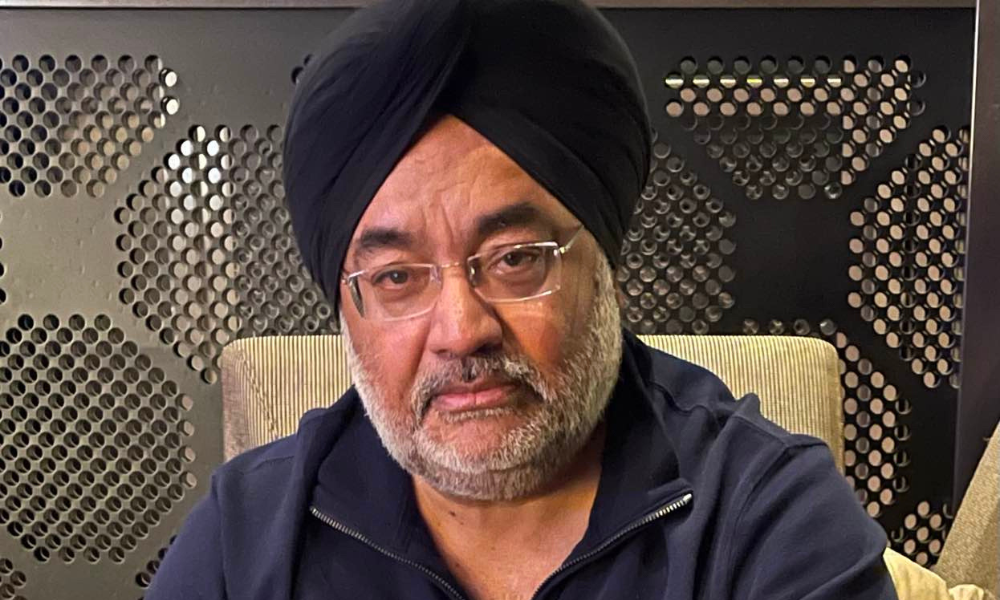Broker believe financial 'experts' on social media need greater regulation

The mortgage industry’s regulator needs to clamp down harder on so-called finfluencers, according to a leading broker, who suggests that the rise of social media-based financial experts providing online tips could be ‘dangerous’ for some borrowers.
Bob Singh, director of Chess Mortgages, a highly experienced and qualified broker, who is himself known as The Mortgage Maharaja on channels such as YouTube and TikTok, has urged the Financial Conduct Authority to tighten up on those who advise on monetary matters across online channels.
It was recently reported that hundreds of social media posts and websites operated by financial influencers were to be taken down – with The Financial Conduct Authority (FCA) quoted as saying the move was part of an international crackdown, which had led to three arrests in the UK.
While acknowledging that the growth of finfluencers is positive as a free way to promote products or services, Singh is concerned about the calibre of the advice offered. “The explosive rise of social media has seen many finfluencers mushroom all over all the platforms, many having hundreds and thousands of followers,” Singh told Mortgage Introducer. “The concern comes in when the qualifications or products are unverified and the public, often unsuspecting, are sold products and services which may not always be up to the mark and often dangerous. This is very true of the medical and financial sectors, to name a few.”
He added: “Finfluencers not only have great reach, but they're highly influential to their audience and followers. The platforms do not have the means to sort the good from the bad and ugly. and enforcement is non- existent. It's a wild west out there.”
Singh is urging the regulator and social media platforms to educate clients on how to verify finfluencers before engaging with them. He claims the platforms are falling short in the way they protect followers, and suggests that fake profiles download others' videos and content. Behind these bogus profiles, he suggests, lurk scammers seeking to take advantage of unwitting viewers.
“We are forever warning people to check the profile as they look so convincing,” Singh said. “TikTok needs to work in conjunction with the regulatory bodies and display verified badges, to provide comfort to the viewers. A code of conduct needs to be established so these posts are treated as financial promotions and full info is given on the pages. A whistleblowing facility is there but I have not seen any action taken despite reporting fake profiles.”
Read more: How good are brokers at looking after their own mortgages?
How much reach does social media have?
To illustrate the reach of social media, Singh shared the extent of his following online. “As a TikToker myself, with 46,000 followers, we can generate significant traffic from just one video,” he said. “My latest has had 250,000 views in just a few days, with 500 messages and no end of phone calls. which hopefully will result in significant business.”
Singh cited a recent post on social media telling viewers how to get two buy-to-lets with just a 10% deposit. “Clearly the finfluencer was encouraging scheme manipulation without a full understanding or explanation of the taxation or Stamp Duty costs - seemingly a total disregard for borrower safety,” he said. “A little knowledge can be a dangerous thing in the wrong hands.” On a more reassuring note, he added: “One thing is clear - the public watch and only approach when they are comfortable with your content. Many discerning clients will check the FCA register, Google reviews, and Companies House before making a call.”
Love them or hate them, social media accounts purporting to be financial experts are a fixture for now, in Singh’s view. “Finfluencers, good and bad, will be here for a long time yet,” he said. “Next, we will see the rise of Avatar influencers, where faceless advisers, with fake AI voiceovers, will continue to lure in the unsuspecting public. The public need to be alerted to check and double check before they part with personal information and documents - or money. The sooner the FCA clamp down and take these people off the platforms the better and safer clients will be.”



